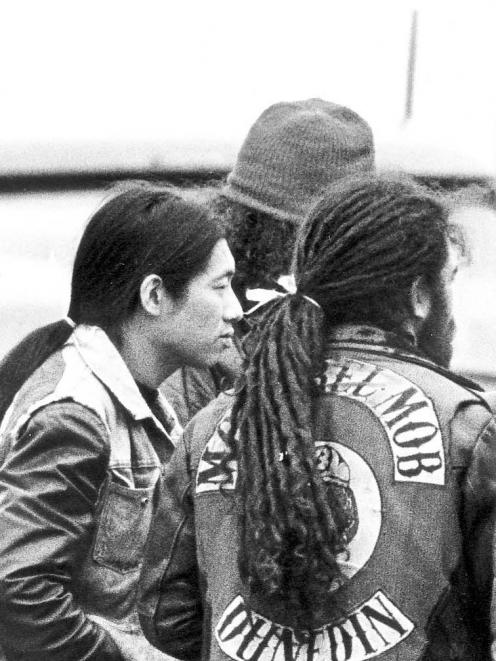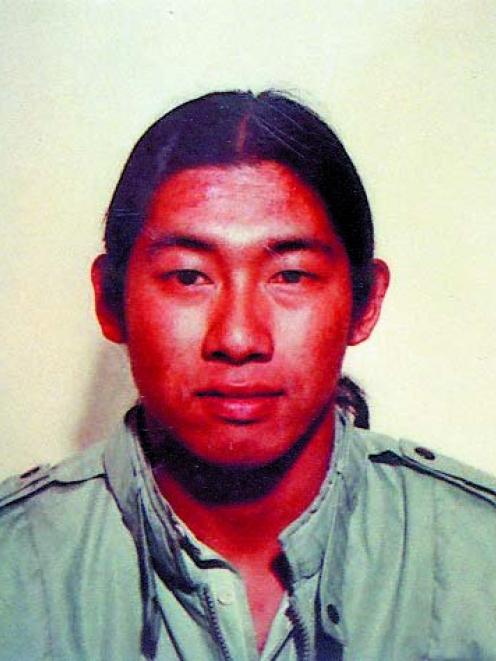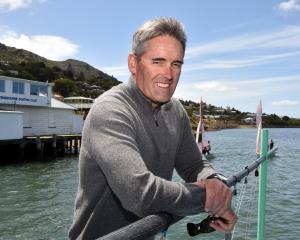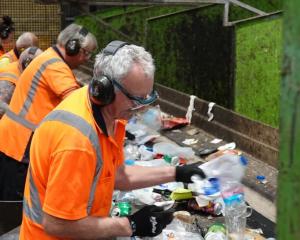
Māori justice campaigner Paora Moyle has broken her silence, saying two women, including a state abuse survivor, approached the Commission in recent months to express fears over Mongrel Mob member Harry Tam's behaviour.
One of the women also approached police. RNZ has agreed not to release any more details.
She told RNZ situation had brought the Commission's work into disrepute and reflected an inability of commissioners to offer a safe environment for abuse survivors coming forward.
This morning the Commission released a statement saying it had started an independent investigation into the allegations.
Paora Moyle, 56, claimed the inquiry commissioners did little to mitigate the dangers posed to both vulnerable survivors and to the integrity of the inquiry process, after Mr Tam was given a key position within the Commission.
One of those with safety concerns was Mr Tam's former long-term partner Charlotte Mildon, who recently separated from the former government advisor.
The Hawke's Bay woman emailed the secretariat's executive director Mervin Singham, alerting him to Mr Tam making her feel unsafe by entering her bedroom at night, behaviour she regarded as "an example of Mongrel Mob stand-over tactics". She took to social media last month to highlight her claim.
Mr Tam had been previously issued with a Police Safety Order to stay away from Ms Mildon for four days after a domestic incident, reported to police in July 2017.

Mr Tam was appointed to the key position of director of policy and research at the beginning of the year, providing leadership and management support with the inquiry's secretariat team.
He was subsequently given another pivotal job of further shaping the Commission's make-up and direction, when Mr Tam was made facilitator of the inquiry's Survivors Advisory Group and given authority to weigh up applications to choose its 20 members. The role of the group is to help direct the Commission's work.
Paora Moyle said Mr Tam's key portfolios within the Commission had allowed him access to survivors' personal information and believed giving him broad-ranging input into the inquiry process was "irresponsible and untenable".
The survivor advocate said the commissioners should be held to account for the "contradictory nature" of allowing Mr Tam such scope. "I think it's completely thwarted the work that needs to be done," she said.
Paora Moyle, a survivor of state abuse herself, said she also believed Mr Tam selected the advisory group "to best suit his positioning, rather than the positioning of all the different groups that are represented in survivorship".
One of those appointed was Rangi Wickliffe, convicted in 2015 for falsely claiming he shot dead Douglas Witere in April 2014 in the hope he would receive $100,000 from the real culprit, Troy McHugh. Another choice was former Papamoa community patrol volunteer, Gregory Molony, who in 2013 was convicted for impersonating a police officer while trying to find a female escort.
She believed the situation reflected a shocking dysfunctionality of the Commission and highlighted its lack of clinical knowledge of trauma and how to ensure survivor safety.

"These Commissioners, in their legal beagle standing, don't have any idea how to engage with trauma, they may say that they do, but they don't, and that's what is being reflected by many who have already engaged with them," she said.
"I am in a government advisory position that tasks selected members with coming up with a national strategy to address family and sexual violence and violence toward whanau. I have to act with integrity and I cannot in all conscience be in this role while being silent on what's happening within the Commission.
"If you are unsafe with our survivors and they are reporting back that they feel unsafe with you... then that needs be on the table and I know from my survivors feeding back to me that there are concerns there.
"It completely brings disrepute to work that the Royal Commission is tasked to do. The Commission not only has a duty of care to survivors stepping forward to offer their testimony but also to those they employ. I asked them would they do something about this issue and to date nothing has been done. I've said to the commissioners this will come back and bite and that's exactly where we are at today."
Paora Moyle said she urged one commissioner, Dr Andrew Erueti, in a text conversation on 1 June, to intervene, and criticised the absence of a complaints procedure to address an issue of commissioners "sanctioning unsafe contact with vulnerable survivors".
In a text to Dr Erueti, she said: "You need to be mindful of the position you put Harry and RCI in when he is allowed to contact women survivors and ask them questions ... when it's being alleged that he has abused women survivors.
"He should be stepped down whilst an investigation into his alleged conduct is held. ********** told you about his treatment of her. Does this not matter to the Commissioners?"
Paora Moyle also demanded to know why Mr Tan had been given authority to choose those on the Survivors Advisory Group, given that it was understood commissioners would be doing so.
In a further text to Dr Erueti, on 3 June, she said: "How come he has been given the portfolio of choosing the advisory panel people? This is a huge conflict of interest given a recent complaint from a survivor ... We were told at our Hui by you all that Commissioners would be choosing the applicants. I'm really very disappointed that Harry has all of this power and it will be hugely impactual on other women survivors. This is the worst news and utter incompetence."
Dr Erueti texted back, acknowledging he had read the messages and said he would pass the concerns on to the other Commissioners.
The Commission is tasked with looking at all state-run and faith-based institutions between 1 January 1950 to 31 December 1999. Seventy percent of those who have gone through stare care were Māori and 80 percent of Māori in prison had been in state care.
Paora Moyle said Mr Tam had formidable skills in bringing those hard-to-reach Māori ex-wards of state into the Commission, having deep penetration into the nation's prisons.
But she believed his presence would have the opposite effect when bringing on board vulnerable Māori female survivors of abuse.
"What I'm hearing per se is [gangs] do repel a lot of women. Not all women - because some of our women grow up really comfortably around men in gang families and I don't want to go on the 'let's hate the gangs thing'. My own background is also in the Mongrel Mob and I know how some of that works and there are a lot of females how have gone from state care straight into family violence and when you've got someone in a position of power, who's got access to your information, your most private information, that can be really friggin' scary. That is the repellence."
Mr Tam declined to comment when contacted by RNZ.
RNZ has directed several questions to the Royal Commission regarding the nature of Mr Tam's involvement and the way it had handled complaints of unsafety by survivors.
This morning, it released a statement saying it had started an investigation into the "serious allegations".
"The Royal Commission of Inquiry into Historical Abuse in Care is aware of allegations raised against a staff member," the statement said.
"These are serious allegations and they are being treated as such. We understand this matter has been referred to New Zealand Police.
"The Royal Commission has also commenced an independent investigation into the allegations. If the investigation indicates any grounds to take employment action, the Royal Commission will act immediately and appropriately.
"The Commission is unable to comment on the nature of the allegations due to privacy considerations and the need to preserve the independence of the investigation.
"Issues that are likely to impede the important work of the Royal Commission will be addressed as a matter of urgency."
It remains unclear whether a complaints procedure has been put in place. It is understood Mr Tam recently ceased to fulfil the facilitator role of the Survivors Advisory Group, making way for survivor Ken Clearwater from Male Survivor Aotearoa.
Mr Clearwater confirmed his new role and told RNZ he been asked by a member of the Commission on 13 June if he wanted the role. This was the same date RNZ fielded questions to the Commission regarding Mr Tam's position on the Commission. It is understood the group had its first meeting on 20 June.
Some survivors and their representatives have heavily criticised the Commission in recent weeks, citing a lack of transparency, insensitivity by staff members drafted in from the Department of Internal Affairs, procedural issues not outlined clearly, and an inability to establish safe relationships with survivors.
RNZ understands Commissioners completed an eight-week course designed to understand the nature of trauma.
Last September, RNZ sought information from the Department of Internal Affairs on the Royal Commission's preliminary preparations through an Official Information Request, which was declined on the basis that the Commission was not covered under the Act.
The department claimed it did not have access to the Commission's records, even though it oversaw the Commission's work and its senior civil servant Mervyn Singham is in charge of its secretariat, which runs the Commission's day-to-day affairs.
Survivors coming forward to the Commission make up a diverse range of people. State wards, mostly Māori, and survivors of faith-based institutional abuse will have their evidence heard together and concurrently , instead of separately and sequentially, although the Commission has not yet stated this publicly. The inquiry is expected to release its final report in 2023.
The Commission is to hold a preliminary hearing on 25 June at the Environment Court in Auckland.












